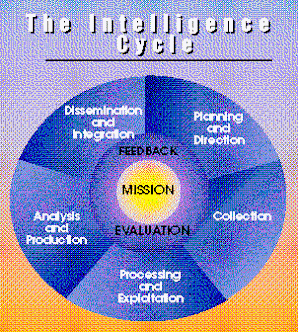Fusion Centers: Giving cops too much information?
At the time, it seemed one of the unanimous lessons of the tragedy of Sept. 11 — law enforcement agencies at all levels of government have to do a better job of sharing information with each other in order to prevent terror plots. Making that actually happen, of course, is easier said than done, which is why newfangled, multi-organizational agencies were set up to promote cooperation and overcome turf battles. But now critics claim that these so-called fusion centers are making it all too easy for government to collect and share data from numerous public databases.
Organizations like the American Civil Liberties Union (ACLU) are pushing bills to restrict fusion centers' access to data, most notably in New Mexico, where opponents hope to make government snooping a costly offense. Legislation has been introduced in Santa Fe that would prohibit any New Mexico law enforcement agency from collecting information about the religious, political and social associations of law-abiding New Mexicans. And in what would be a first for the nation, the bill would allow private citizens to sue law enforcement agencies for damages over the unauthorized collection of such data.
Privacy advocates point to a scandal in the state of Maryland, where last summer it was revealed that in 2005 and 2006 undercover members of the Maryland State Police had carried out surveillance of war protesters and death penalty opponents. Some of the intelligence gathered on the subjects, according to logs obtained by the ACLU last summer, may have found its way into databases shared with local, national and federal agencies through the state's fusion center. An investigation found the data collection represented a serious lapse in judgment, but the victims had little recourse, except public outrage.
"The lack of proper legal limits on the new fusion centers not only threatens to undermine fundamental American values, but also threatens to turn them into wasteful and misdirected bureaucracies that, like our federal security agencies before 9/11, won't succeed in their ultimate mission of stopping terrorism and other crime," the national ACLU notes in its report on the centers.
Comment:
- This kind of news gives me heartburn. Like doctors, lawyers, plumbers, and electricians, the vast majority of law enforcement analysts are motivated, trained and ethical professionals. Like these other groups, they occasionally make mistakes, but that's all it is, an occasional mistake!
- I have visited a number of fusion centers and know many analysts that work in them. They do a tremendous job. The country is much safer because of their efforts.
- Critics of fusion centers generally have no real idea what it is that they actually do and the hoops that analysts have to jump through to get products created, checked and disseminated. These same critics have their own agendas and the truth can be a casualty.
- Fusion centers must comply with regulations, and although a formal code of ethics has not been drawn up, they follow very high standards.
- The times that mistakes are made, it is when the guidelines have not been followed properly. If analysts and their managers would ensure they are followed, and have standard operating procedures in place, then these mistakes will dry up along with the criticism. Intelligence professionals must stick to the rules just like anyone else.
Source:



0 comments:
Post a Comment